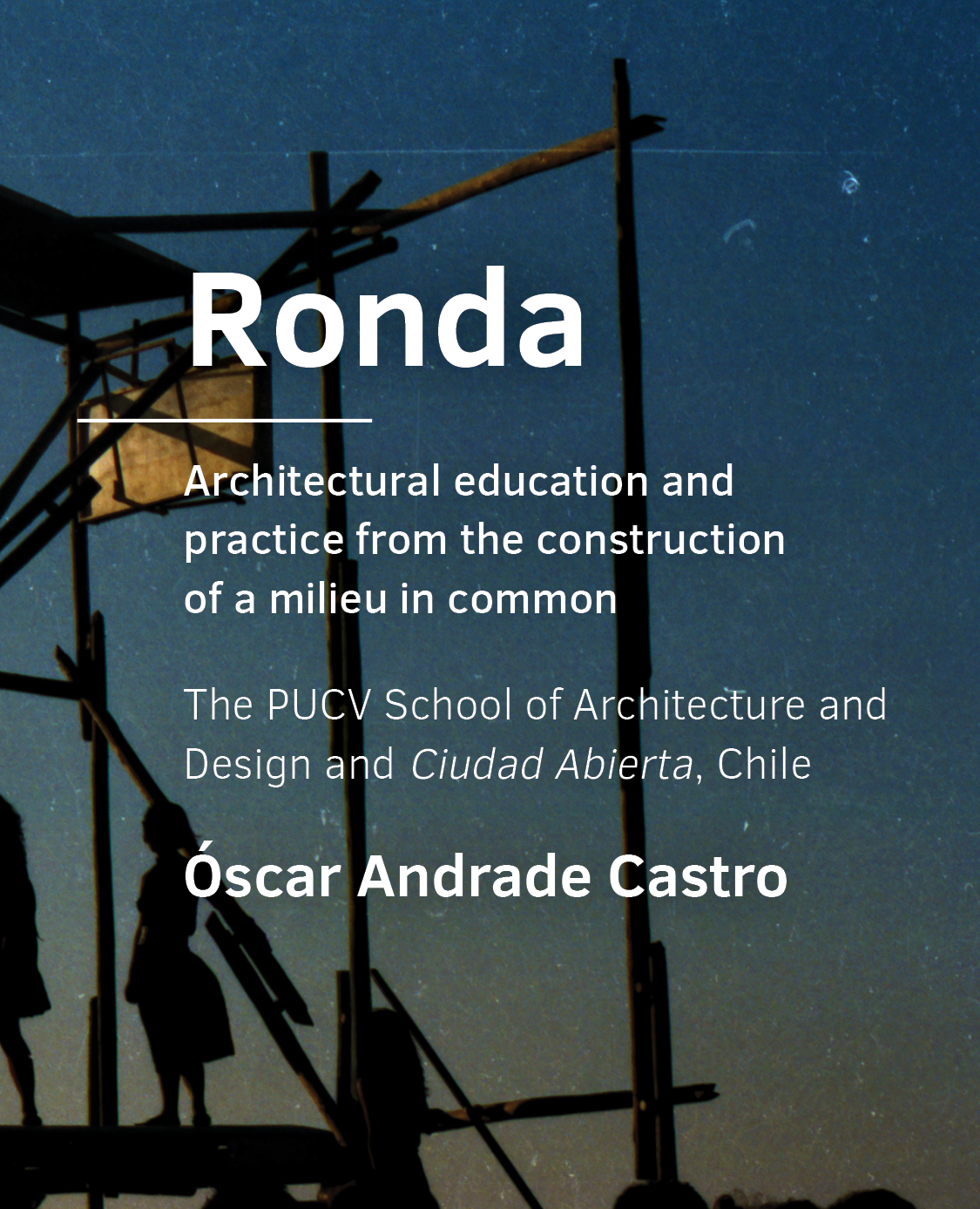Ronda
Architectural education and practice from the construction of a milieu in common
DOI:
https://doi.org/10.7480/abe.2021.22.6192Abstract
This dissertation focuses on architectural education and practice as a collective experience, examining the particular case of the PUCV School of Architecture and Design and Ciudad Abierta in Chile. The study asks whether the culture of collectivity that characterises the school has served as a supporting structure for its artistic and pedagogical project and if so, which elements configure the collective ways of studying and practising at this school. The dissertation delves into these questions by following the trail of a concept that crystallises the school’s collective ethos: The Ronda. This notion refers to a collective working format practised by the members of the school and Ciudad Abierta, through which they carry out their fundamental proposals and projects. As a result, the school set the conditions for the formative experience by constructing a creative milieu in common, understood as a specific environment shaped by commonality across the spheres of life, work, and study. By comprehending a school as an expanded network of communities, this dissertation provides insights on how architectural training can diversify its practices, spaces, and frameworks in new configurations beyond the academic realm and complementary to university institutions. Furthermore, proposing the school as a constellation of communities offers a perspective on alternative modes of and articulations between architectural pedagogy, practice, and research.


